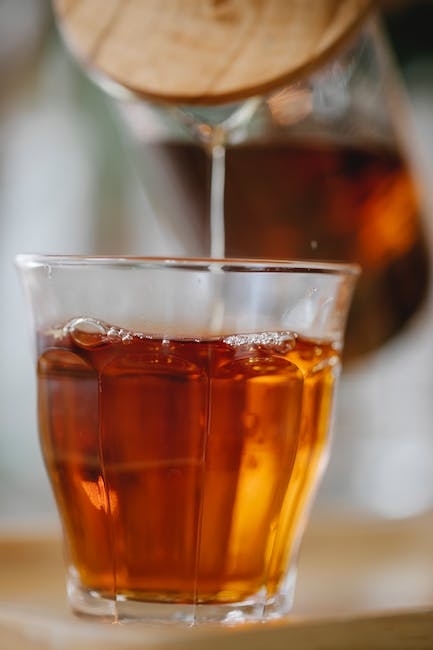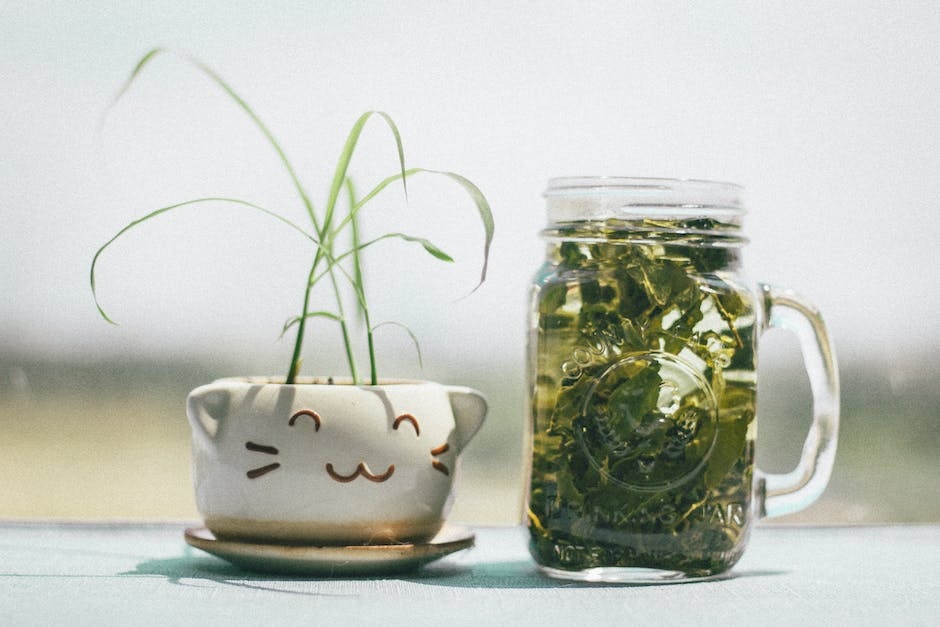Introduction to Drinking Herbal Tea Before Surgery
Welcome, tea enthusiasts! Have you ever considered incorporating herbal tea into your pre-surgery routine? If not, you might be missing out on a natural and delicious way to prepare your body for the upcoming medical procedure. Herbal tea is not only a comforting and soothing beverage but can also provide numerous benefits to your body before surgery. In this article, we will explore the advantages of drinking herbal tea before surgery, the various types of herbal tea to choose from, precautions to keep in mind, and the best way to prepare and enjoy your cup of herbal tea. So, grab your teacup, sit back, and let’s dive into the world of herbal tea and surgery preparations!
Benefits of Drinking Herbal Tea Before Surgery
Drinking herbal tea before undergoing surgery can offer several potential benefits for both your physical and mental well-being. Let’s take a closer look at some of these advantages:
- Relaxation: Many herbal teas, such as chamomile, lavender, and lemon balm, have calming properties. Sipping on a warm cup of these teas before surgery can help reduce anxiety and promote a sense of relaxation.
- Digestive Aid: Some herbal teas, including peppermint, ginger, and fennel, have been traditionally used to soothe the digestive system. This can be particularly helpful before surgery when your body may undergo temporary digestive disturbances due to fasting or anesthesia.
- Immune Boost: Certain herbs, like echinacea and elderberry, are known for their immune-boosting properties. Drinking herbal teas that contain these ingredients prior to surgery may support your immune system and help you better cope with the stress of the procedure.
- Anti-inflammatory Effects: Turmeric, green tea, and rosehip tea are examples of herbal teas known for their anti-inflammatory properties. By incorporating these teas into your pre-surgery routine, you may help reduce inflammation in your body, which can aid in the healing process.
- Hydration: Staying hydrated is essential before surgery. Herbal teas, like hibiscus tea or mint tea, can provide hydration while offering additional health benefits.
Remember, these potential benefits may vary depending on the individual and the specific tea consumed. It’s always best to consult with your healthcare provider before making any changes to your pre-surgery regimen.
In the next section, we will explore the different types of herbal tea that you can consider incorporating into your pre-surgery routine.
Types of Herbal Tea to Drink Before Surgery
When it comes to choosing the right herbal tea to drink before surgery, there are plenty of options to consider. Each type offers unique flavors and potential health benefits. Here are some popular herbal teas to include in your pre-surgery routine:
- Chamomile Tea: Known for its calming properties, chamomile tea can help relax the mind and body before surgery. It has a mild, floral taste and is often enjoyed in the evening to promote a restful sleep.
- Peppermint Tea: Peppermint tea is known for its soothing effects on the digestive system. It can help relieve bloating and discomfort, making it a great choice before surgery if you are experiencing any digestive issues.
- Ginger Tea: Ginger tea has long been used to alleviate nausea and aid digestion. If you are prone to postoperative nausea or have a sensitive stomach, sipping on ginger tea before surgery may provide some relief.
- Lemon Balm Tea: Lemon balm has a gentle lemony flavor and is known for its calming properties. This tea can help reduce anxiety and promote relaxation before the surgery.
- Echinacea Tea: Echinacea tea is often used to support the immune system. It may be beneficial to include this herbal tea in your pre-surgery routine to give your immune system a little boost.
- Turmeric Tea: Turmeric tea is rich in antioxidants and has anti-inflammatory properties. By drinking turmeric tea before surgery, you may help reduce inflammation and support the healing process.
These are just a few examples, and there are many other herbal teas available in the market. Explore different flavors and combinations to find the ones you enjoy the most.
However, it’s important to note that herbal teas can have different effects on individuals, and some herbs may interact with certain medications. It’s always a good idea to consult with your healthcare provider to ensure that the herbal teas you choose are safe and appropriate for your specific situation.
In the next section, we will discuss some precautions to keep in mind when drinking herbal tea before surgery.
Precautions to Take When Drinking Herbal Tea Before Surgery
While herbal tea can offer many benefits before surgery, it’s crucial to exercise caution and take certain precautions to ensure your safety. Here are some important considerations to keep in mind:
1. Consult with Your Healthcare Provider: Before incorporating herbal tea into your pre-surgery routine, it’s essential to consult with your healthcare provider. They can provide guidance based on your specific medical history, allergies, and medications. They will be able to advise which herbs are safe for you to consume and which ones to avoid due to potential interactions.
2. Be Mindful of Allergies: Some individuals may have allergies or sensitivities to certain herbs. It’s important to be aware of any reactions you may have experienced in the past and avoid consuming herbal teas that contain those specific herbs.
3. Avoid Caffeinated Herbal Teas: Certain herbal teas, such as black tea, green tea, and yerba mate, can contain caffeine. It’s generally best to avoid caffeinated herbal teas before surgery, as caffeine can interfere with anesthesia and potentially increase heart rate and blood pressure.
4. Monitor Blood Thinning Properties: Some herbal teas, like chamomile, ginger, and turmeric, have natural blood-thinning properties. If you are scheduled for surgery, it’s important to let your healthcare provider know if you consume these teas regularly, as they may affect blood clotting and healing post-surgery.

5. Follow Fasting Guidelines: If you are required to fast before surgery, make sure to adhere to the fasting instructions provided by your healthcare provider. While herbal teas can be enjoyed before fasting begins, it’s important to stop consumption well within the specified time period to avoid any complications during the surgery.
6. Quality and Preparation: Choose high-quality herbal teas from reputable sources to ensure purity and safety. Follow the recommended brewing instructions and be mindful of the strength and dosage of the herbs used.
By taking these precautions and seeking professional advice, you can enjoy the benefits of herbal tea while minimizing any potential risks or complications.
In the next section, we will dive into the best ways to prepare and drink herbal tea before surgery.
How to Prepare and Drink Herbal Tea Before Surgery
Preparing and savoring a cup of herbal tea before surgery can be a calming and enjoyable ritual. Here are some simple steps to help you make the most of your herbal tea experience:
| Step 1: | Choose your herbal tea: | Consider the flavors and benefits you desire. Select a herbal tea that aligns with your preferences and medical considerations, keeping in mind the precautions discussed earlier. |
| Step 2: | Gather your equipment: | Grab your favorite teapot, teacup, or infuser and ensure they are clean. Using a teapot or infuser will allow the tea leaves or herbs to steep properly. |
| Step 3: | Boil fresh water: | Bring fresh, filtered water to a boil. The temperature of the water will depend on the type of herbal tea you are using. Follow the instructions on the packaging or use general guidelines like 200°F (93°C) for most herbal teas. |
| Step 4: | Measure the herbs or tea leaves: | Follow the recommended measurements for your chosen herbal tea. Generally, 1 teaspoon of dried herbs per cup of water is a good starting point. Adjust the amount according to your preferred strength. |
| Step 5: | Steep the tea: | Place the herbal tea in your teapot or infuser and pour the hot water over it. Allow it to steep for the recommended time, usually around 5-10 minutes, depending on the type of herbal tea. |
| Step 6: | Strain and serve: | If using an infuser, remove it from the teapot. If not, use a strainer to separate the herbs or tea leaves from the liquid. Pour the freshly brewed herbal tea into your cup. |
| Step 7: | Add optional ingredients: | Enhance the flavor of your herbal tea by adding a slice of lemon, a drizzle of honey, or a sprig of fresh herbs like mint or lavender. |
| Step 8: | Sip and savor: | Find a calm and comfortable spot to enjoy your cup of herbal tea. Take slow, mindful sips, savoring the aroma and flavor. Use this time to relax and prepare yourself mentally for the upcoming surgery. |
Remember to allow enough time between drinking herbal tea and the start of fasting, as advised by your healthcare provider.
By following these steps, you can create a peaceful and nurturing tea-drinking experience that complements your pre-surgery routine.
In the final section, we will wrap up our discussion and conclude with some final thoughts.
Conclusion and Final Thoughts
Incorporating herbal tea into your pre-surgery routine can provide a range of benefits, from relaxation and digestion support to immune boosting and anti-inflammatory effects. However, it’s essential to approach herbal tea consumption before surgery with caution and take necessary precautions.
When choosing herbal teas, consider options such as chamomile, peppermint, ginger, lemon balm, echinacea, and turmeric, among others. Each herbal tea offers its own unique flavors and potential health benefits.
Before adding herbal tea to your pre-surgery ritual, it is crucial to consult with your healthcare provider. They can guide you based on your medical history, allergies, and medication interactions, ensuring your safety and well-being.
When preparing herbal tea, select high-quality teas from reputable sources, follow recommended brewing instructions, and be mindful of the strength and dosage of the herbs used. Take time to savor your cup of herbal tea, allowing yourself to relax and mentally prepare for the upcoming surgery.
However, it’s essential to remember that herbal teas are not a substitute for medical advice or professional care. Always follow the instructions provided by your healthcare provider and inform them of any herbal tea consumption.
In conclusion, drinking herbal tea before surgery can be a soothing and enjoyable way to prepare your body and mind. It offers potential benefits for relaxation, digestion, immune support, inflammation reduction, and hydration. By taking precautions, choosing suitable herbal teas, and seeking guidance from your healthcare provider, you can make herbal tea a valuable addition to your pre-surgery routine.
So, why not sip on a warm cup of herbal tea before your surgery and embrace the tranquility it brings? Cheers to your health and a successful procedure!


Leave a Reply